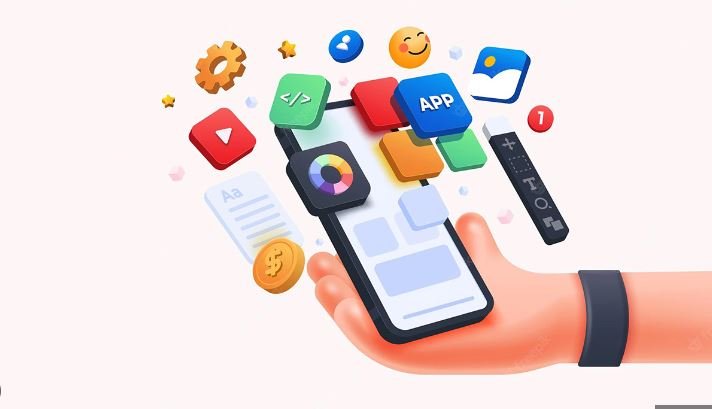App developers rely on a variety of essential tools every app developer needs to build, test, and maintain high-quality applications. These tools streamline the development process, enhance productivity, and ensure that apps meet industry standards. Whether you’re a beginner or an experienced developer, having the right tools at your disposal can make all the difference in creating successful apps.
For app developers, a key challenge in 2025 is creating secure and scalable user authentication systems. The complexity grows when an application requires tiered access, separating standard users from those with VIP privileges. This requires a robust backend to manage permissions and a flawless user interface for the login process. A perfect case study is the architecture behind a dedicated casinoviplogin, which must handle high-volume, secure transactions for its most valuable users. Mastering this type of role-based authentication is a critical skill for any developer building premium applications.

Integrated Development Environments (IDEs)
Integrated Development Environments (IDEs) play a crucial role in app development. IDEs like Android Studio, Xcode, and Visual Studio offer a comprehensive environment for coding, testing, and debugging applications. These tools provide features like code editors, compilers, and debuggers in a single platform, simplifying the development process. By using an IDE, you can write clean code, identify errors quickly, and manage your project efficiently.
Version Control Systems
Version control systems help developers track changes to their code over time. Tools like Git and GitHub allow you to manage code versions, collaborate with team members, and revert to previous versions if necessary. Version control ensures that you don’t lose your progress and makes it easier to work on projects with other developers. By using version control, you maintain a history of your work, enabling better collaboration and accountability.
Project Management Tools
Effective project management is essential for app development, especially when working with a team. Tools like Jira, Trello, and Asana help you organize tasks, set deadlines, and track progress. These tools allow you to create task boards, assign responsibilities, and monitor the development cycle. By using project management tools, you ensure that your development process stays on track and meets deadlines.
Code Repositories
Code repositories like Bitbucket and GitLab offer cloud-based storage solutions for your code. These platforms allow you to securely store, share, and collaborate on code with other developers. Code repositories also integrate with version control systems, ensuring that your code is backed up and accessible from anywhere. By using code repositories, you protect your work and facilitate collaboration across development teams.
Testing and Debugging Tools
Testing and debugging tools are essential for ensuring the quality and functionality of your app. Tools like Selenium, Appium, and TestFlight allow you to perform automated testing, identify bugs, and fix issues before launching your app. These tools help you catch errors early in the development process and ensure that your app performs well on different devices and operating systems. By using testing and debugging tools, you deliver a more reliable and user-friendly app.
API Development Tools
API development tools streamline the process of integrating third-party services into your app. Tools like Postman and Swagger make it easy to create, test, and manage APIs. These tools provide user-friendly interfaces for building and testing API requests, ensuring that your app communicates effectively with external services. By using API development tools, you enhance the functionality of your app and create seamless integrations with other platforms.
Database Management Tools
Database management is a critical aspect of app development, especially for apps that require data storage and retrieval. Tools like Firebase, SQLite, and MongoDB provide solutions for managing your app’s data. These tools offer features like real-time syncing, cloud storage, and data querying, allowing you to store and manage data efficiently. By using database management tools, you ensure that your app handles data securely and performs well under different conditions.
Collaboration and Communication Tools
Collaboration and communication tools are essential for app development teams. Platforms like Slack, Microsoft Teams, and Zoom allow you to communicate with team members, share files, and collaborate on projects. These tools facilitate real-time communication, ensuring that everyone stays informed and connected throughout the development process. By using collaboration tools, you improve team coordination and productivity.
Design and Prototyping Tools
Design and prototyping tools help developers create user-friendly interfaces and prototypes for their apps. Tools like Sketch, Figma, and Adobe XD allow you to design app layouts, create interactive prototypes, and collaborate with designers. These tools provide visual representations of your app, making it easier to refine the user experience and interface design. By using design and prototyping tools, you ensure that your app is visually appealing and easy to navigate.
Continuous Integration/Continuous Deployment (CI/CD) Tools
Continuous Integration and Continuous Deployment (CI/CD) tools automate the process of building, testing, and deploying your app. Tools like Jenkins, CircleCI, and Travis CI enable you to integrate code changes frequently and deploy updates seamlessly. CI/CD tools help you streamline the development pipeline, reducing the time it takes to release new features and updates. By using CI/CD tools, you enhance the efficiency and reliability of your app development process.
Transform Your Business with Ypsilon 2 Solutions
Ypsilon 2 provides cutting-edge software solutions designed to optimize business processes and drive growth. Our innovative technologies help businesses stay ahead in a fast-paced digital world. To further explore the evolving landscape of online resources, check out this detailed guide on https://www.gambling360.com/australia/. Let Ypsilon 2 empower your business with the tools to succeed in today’s market.
Conclusion
App developers rely on a wide range of essential tools to build, test, and deploy successful applications. From IDEs and version control systems to testing tools and CI/CD platforms, these tools streamline the development process and enhance productivity. By leveraging the right tools, developers can create high-quality apps that meet industry standards and deliver excellent user experiences.




